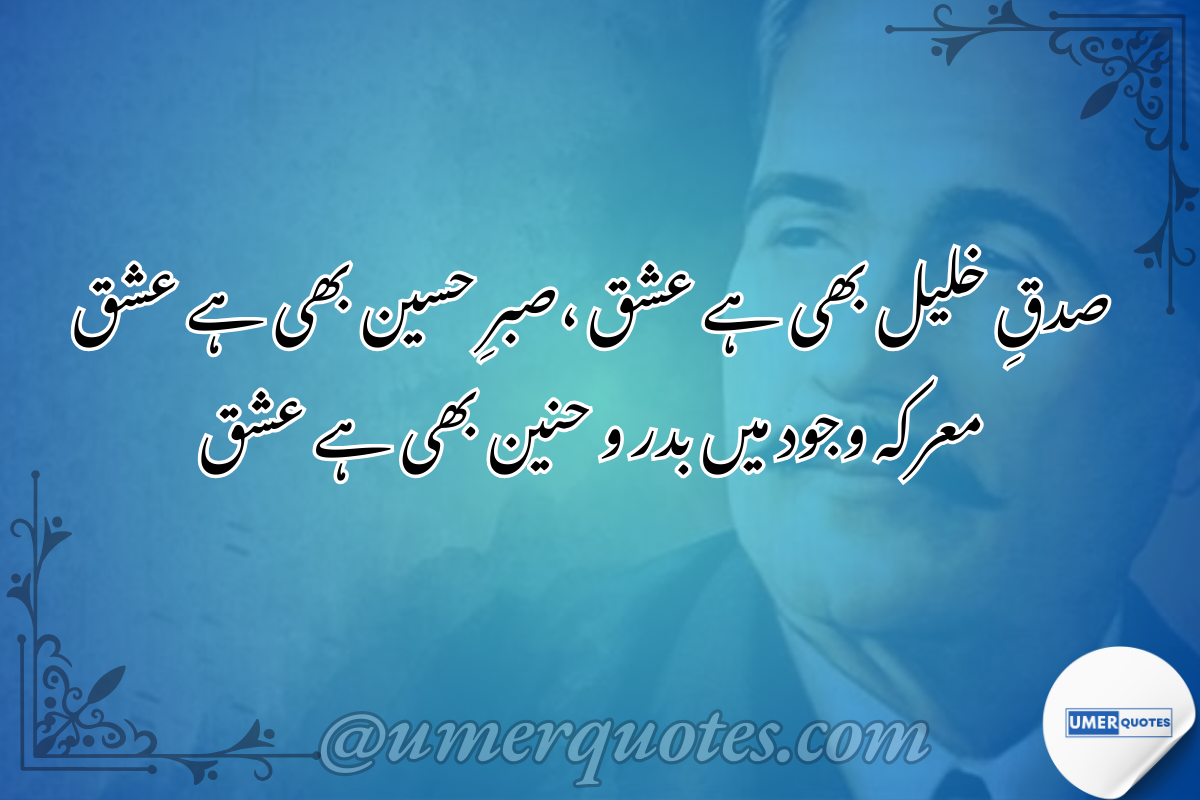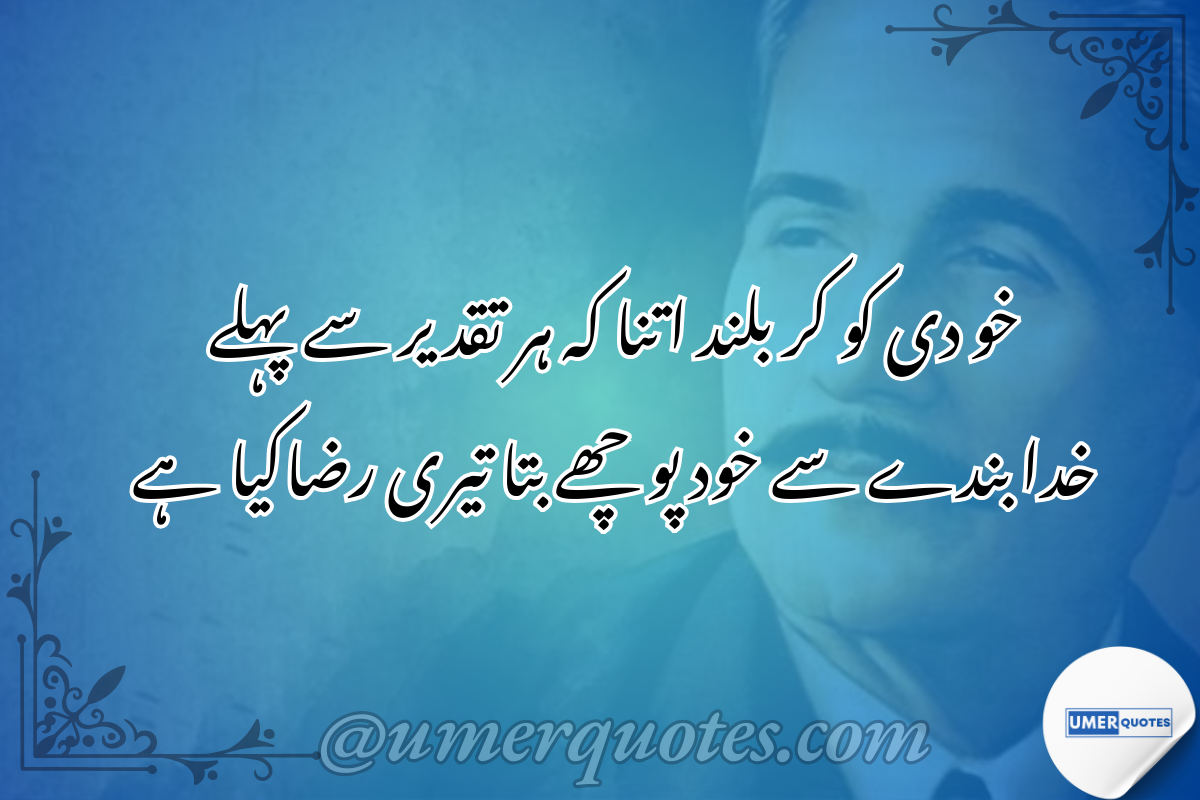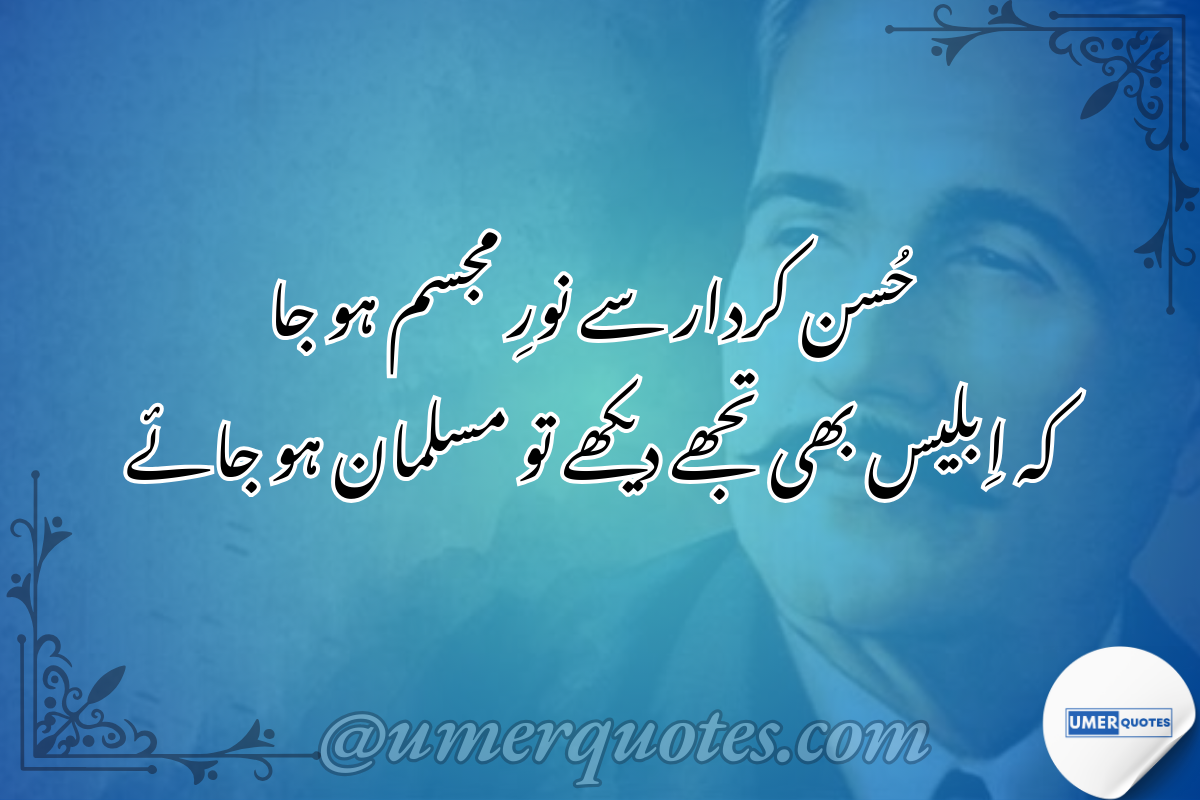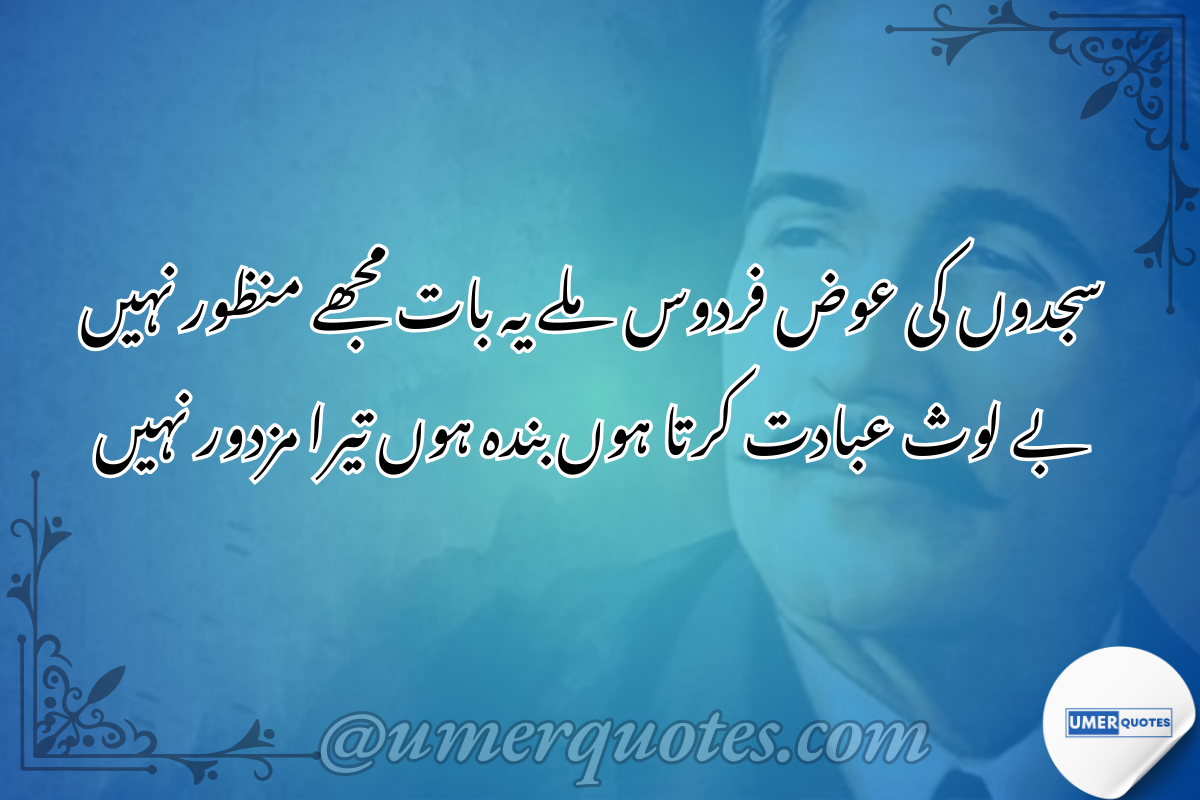
صدقِ خلیل بھی ہے عشق ،صبرِ حسین بھی ہے عشق
معرکہ وجود میں بدر و حنین بھی ہے عشق
The poet says that Love is a state in the human heart which is a manifestation of emotional sacrifice and sacrifice. This is the highest level of love where a person likes himself and devotes his life to a great cause or personality. There are many other forms of love, including real love and virtual love.
The manifestation of love in Sadaq Khalil and Sabr Hussain:
To describe the reality of love, the poet has mentioned two great personalities. The truthfulness of Hazrat Ibrahim (peace be upon him) and the patience of Hazrat Imam Hussain (peace be upon him) are the highest examples of love. Both of them sacrificed their lives on the basis of love, which is a practical proof of their faith and love for Allah.
Love and the battle of existence:
The poet has also connected love with the struggles of life. The battles of Badr and Hunain were practical manifestations of love and faith, which proved that love not only gives spiritual peace but also keeps a person steadfast in the great trials of life.
Summary:
Love is a state that enables a person to make every sacrifice for Allah and His religion. Sadaq Khalil, Sabr Hussain, and the battle of Badr and Hunain are proofs that love not only makes a person strong but also makes him successful in every field of life.

خو دی کو کر بلند اتنا کہ ہر تقدیر سے پہلے
خدا بندے سے خود پوچھے بتا تیری رضاکیا ہے
Poet Saya that, Self is a person’s higher concept of self-identity, consciousness and self-esteem, which motivates him to elevate his personality and create purpose in his life. This philosophy is the main theme of Allama Iqbal’s poetry, through which he makes man realize his spiritual and intellectual elevation.
Self-elevation and the concept of destiny:
In this poem, the poet advises to elevate the self so much that a person can overcome destiny. That is, through his hard work, determination and self-confidence, he should reach such a destination where God will also seek his will from the servant. This philosophy highlights the responsibility and authority of man that he can become the creator of his own destiny.
Self and relationship with Allah:
The poet has described himself as a means of nearness to Allah. When a person elevates his self, he becomes closer to the pleasure of Allah. The concept of asking God’s servant himself is a sign that man’s desires and actions are so pure and high that they are in accordance with God’s will.
Summary:
This poem explains the philosophy of selfhood, which explains a person’s purpose in life and self-respect. The poet has encouraged man to elevate his self so that he becomes the architect of his own destiny and becomes closer to Allah.
حُسن کردار سے نورِ مجسم ہو جا
کہ اِبلیس بھی تجھے دیکھے تو مسلمان ہو جائے
This poem is a reflection of Allama Iqbal’s philosophy, which describes the importance of purity of character and high morals. The poet says that make your character so beautiful and bright (light of embodiment) that seeing your purity and virtues even Satan (Iblis) will be impressed and become a Muslim.Iqbal is describing the strength of human morals and character here.
Beauty and brightness of character:
In this poem, the poet calls Hasan character as Noor-e-Shool (practical light). This is an indication that a righteous character makes a person so that his every action is an expression of purity and light. Such a character is not only outwardly but also pure in the depths of the heart and soul.
Character effectiveness and impression of the devil:
The poets mention here the effectiveness of the character such that even a misguided person like Iblis is influenced and reformed by seeing it. It is a sign that the influence of good character is so deep that it can change hearts and defeat evil.
Summary:
This poem exhorts us to make our character pure and bright so that we can become an exemplary person in our life. A character that epitomizes goodness, truth and beauty has the power to change people’s hearts and eradicate evil.
Here are more of his poetry

سجدوں کی عوض فردوس ملے یہ بات مجھے منظور نہیں
بے لوث عبادت کرتا ہوں بندہ ہوں تیرا مزدور نہیں
These poems describe Allama Iqbal’s deep thought on spirituality and worship. Iqbal here highlights the true spirit and purpose of worship, which should not be for the sake of worldly rewards or paradise, but for the sake of Allah and with sincere intentions.
Denial of worship instead of Paradise:
The poet says that he does not accept worship as a substitute for heaven. It shows the pure intention of worship, which is for Allah alone without any desire for reward or recompense. This attitude reflects a high character and true faith.
Difference between servitude and labour:
The poet has clarified worship with the difference between servitude and labor. Servitude is a passion filled with love and sincerity, while labor is done with the intention of reward and profit. As a servant of Allah, the poet seeks only His pleasure and not any material reward.
Summary:
This poem reflects the pure intention of worship and selfless love. Instead of worshiping Allah in exchange for heaven, the poet describes it as an expression of his love and servitude, which is a sign of true faith and sincerity.




